Here we are at the 11th edition of the Women’s Race.

This year too, there are many women and girls taking part in this event that has become a regular appointment in the Mukwamba valley. For the first time, the category of senior girls aged 13 to 30 who run the 10km long route from the village of Mapompo to the Chakwela Makumbi School is the largest: more than 150 girls. They are the girls who have grown up with us over the years, with the Never Give Up cross-country races, with the Women’s Race, with the Lusaka Marathon and the Victoria Falls Marathon, with the Chakwela Makumbi School, who in previous years crowded the Under 12 category. And you can see it from the start, I recognize all the grit and strength of those little girls still burning in their hearts and legs. The start of the race reminds me of that of the Under 12 girls, while I take photos a few meters from the start I am almost pushed over.
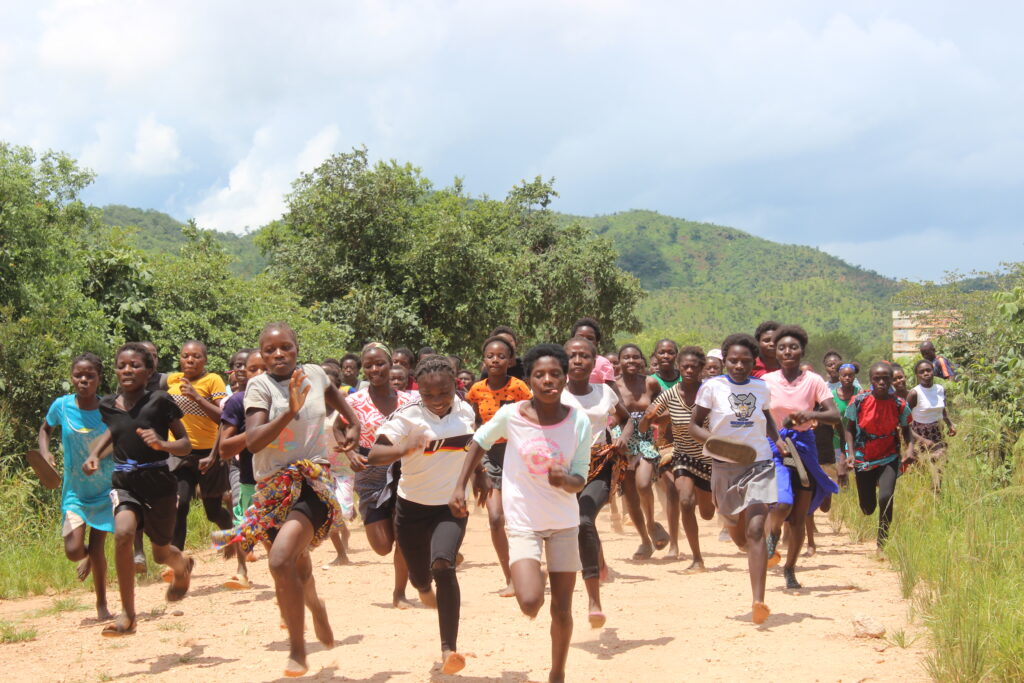
This year the maize is tall in the fields along the road, the rainy season is fortunately abundant and we hope that the Kariba hydroelectric dam will also fill up and Zambia will have electricity again this year, not just that couple of hours a day, or night of the last few months. Not that much will change at Mukwamba Village, here the electricity grid doesn’t even reach and this year’s rain only serves to grow the maize, which is the main source of sustenance for the families.
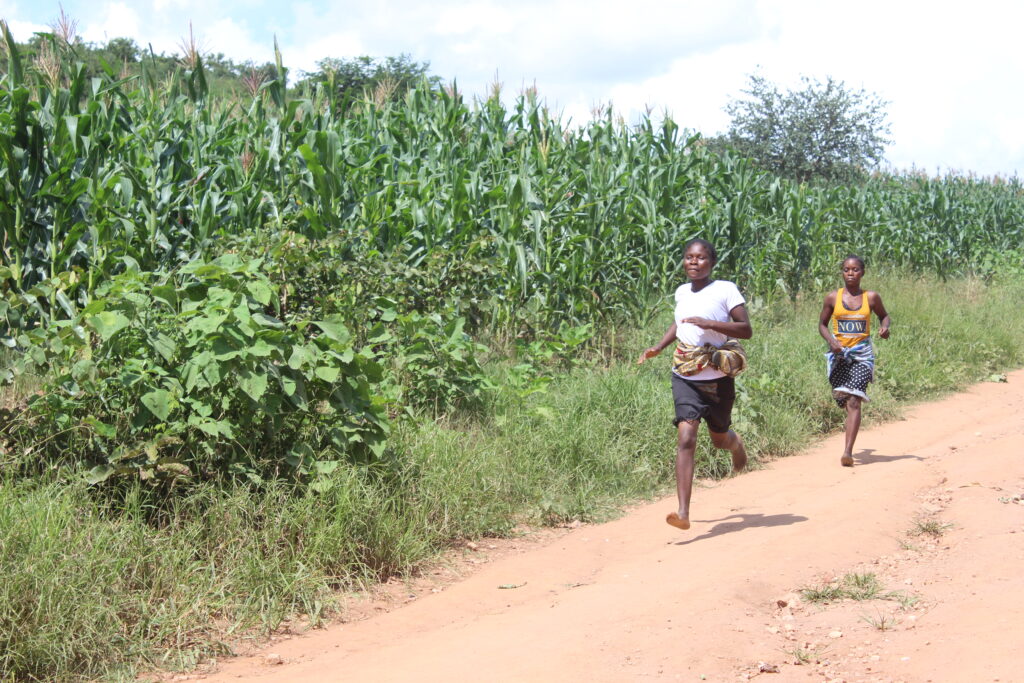
Right next to a maize field, the under 30 girls pass the start of the under 12 girls who create a tunnel of applause and cheering “Number one … Number one” and then “Number two … Number two” and again “Number three … Number three” chanting the position of each one that passes until they lose count.
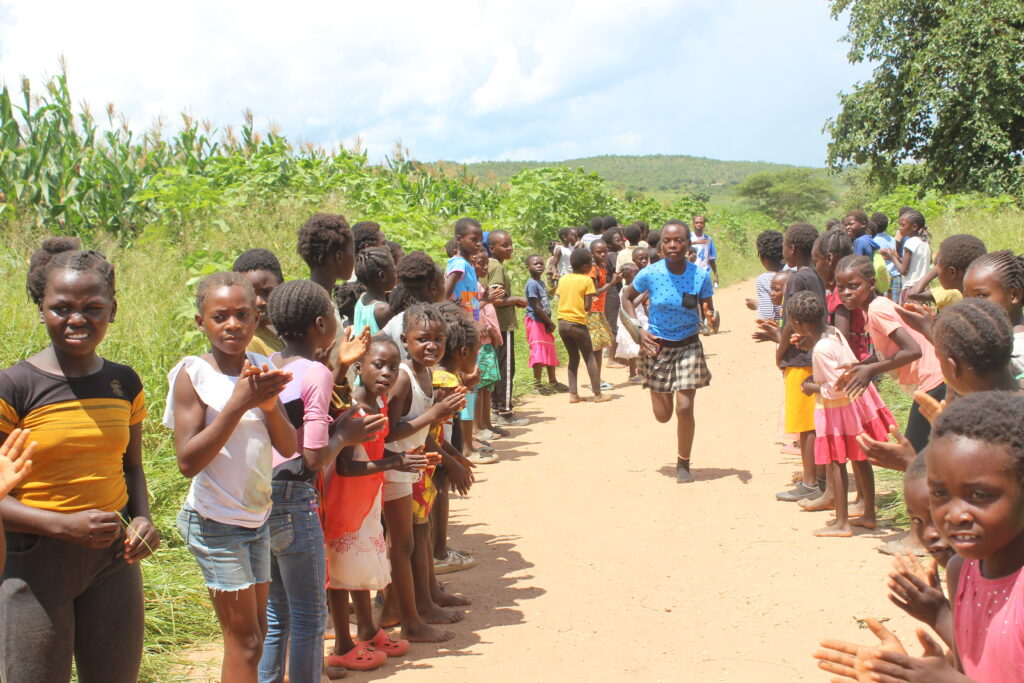
After the girls’ race, the Under 12 start as explosive as ever and all the girls fight to conquer the first lines. Before the start, many brothers are hired as shoe carriers. It’s the first time I’ve noticed it, maybe the first time it’s happened! A boy has a necklace of shoes around his neck that he gives back at the finish line.
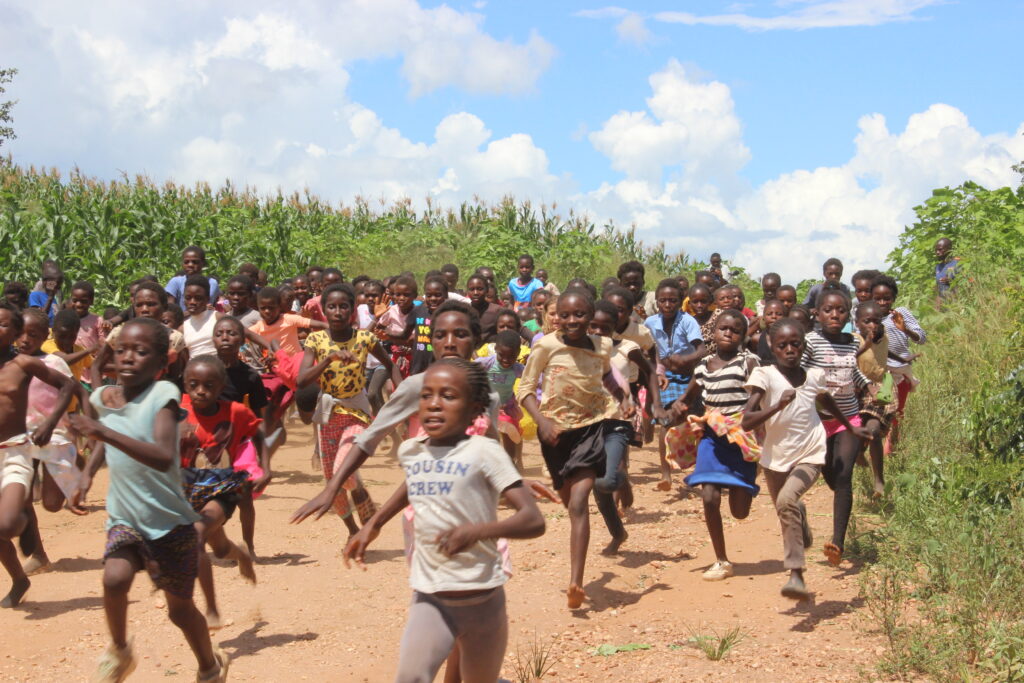
The last race is for women over 30. Before the start, Charles, one of our coaches, explains this year’s motto to the women and asks who knows what Empowerment means, or if anyone can give an example of Empowerment, a woman smiles and says Empowerment is the sanitary pads we receive at the finish line.
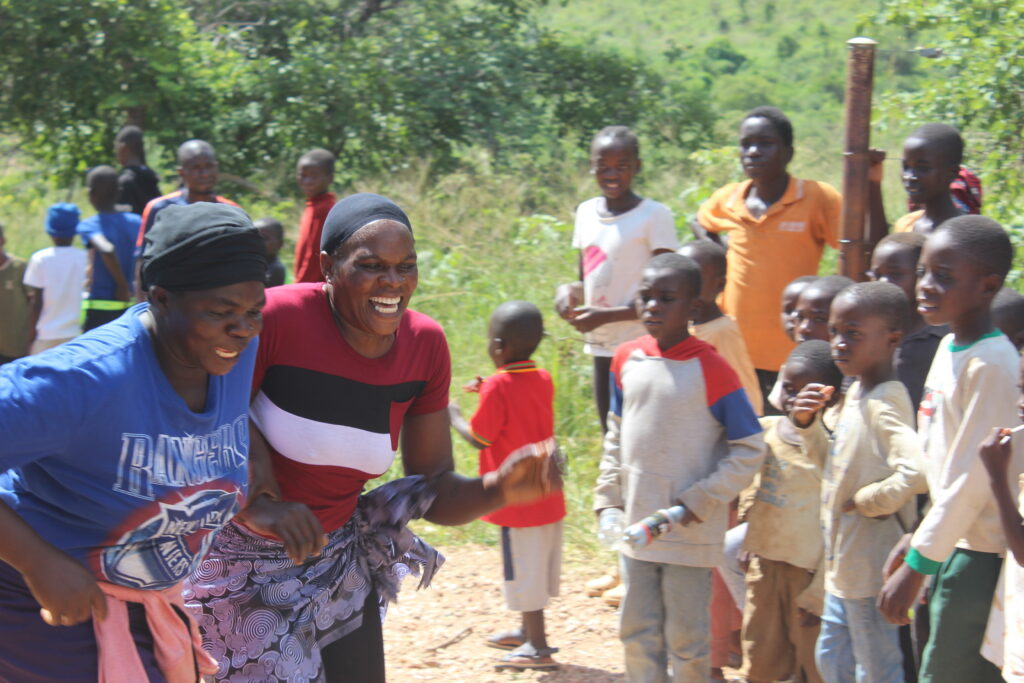
Here is the ranking of the day:
Junior Girls, Under 12:
1. Jenipher Munkombwe
2. Miriam Mukomba
3. Ireen Mwinga
Senior Girls, Over 13
1. Joyce Chala
2. Esnart Choongo
3. Gracious Mwaliteta
Azimai, Over 30
1. Lavenda Shampango
2. Eunice Sekeleti
3. Esther Mwinga
At arrival, as always, all participants received a race pack with sanitary pads, pencils, juices, and biscuits.
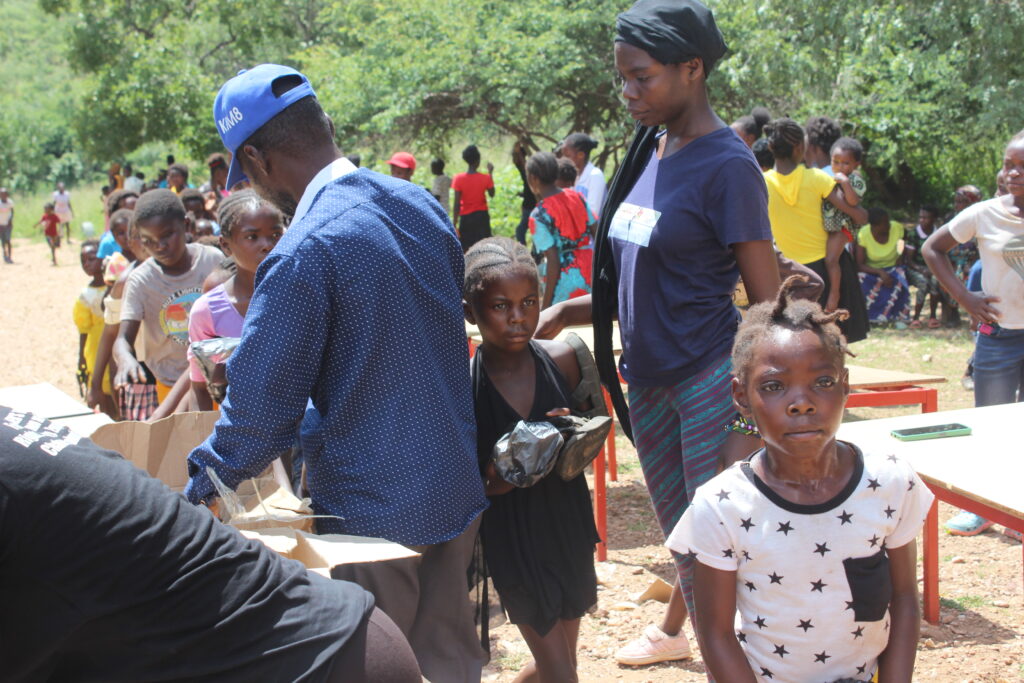
Lunch with the inevitable nsima, white polenta, was prepared this time by the gardeners-jack-of-all-trades of the Chakwela Makumbi School, Amon and Laurent, who laughingly told me “Today the men are cooking!”.
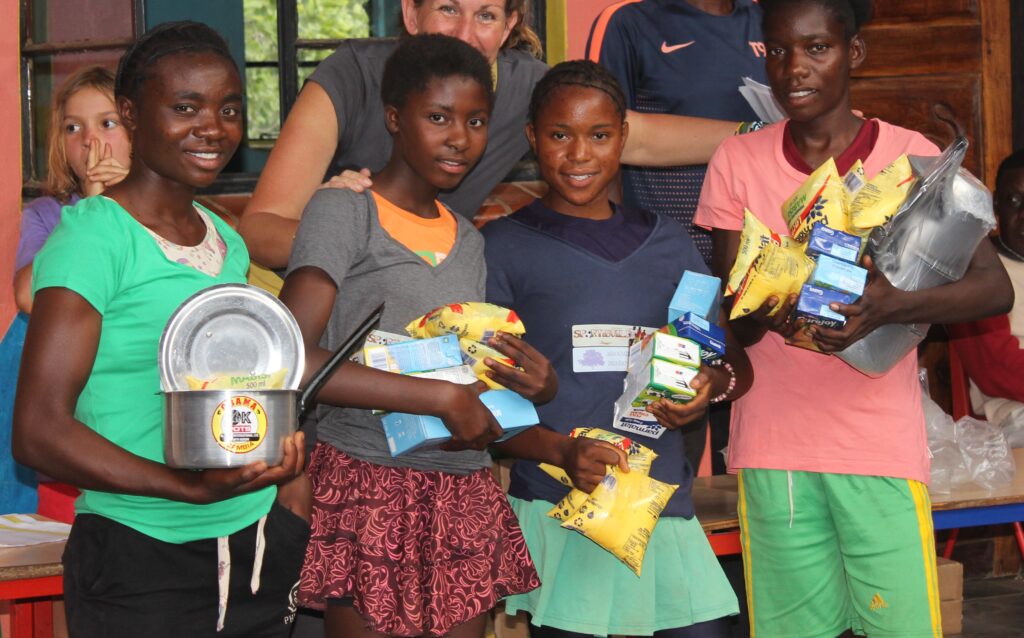
The prizes are a celebration. Stadium-style applause and cheers punctuate the award ceremony: milk, juices, pencil cases, math sets, and pots, speakers and t-shirts for the first place winners. All made possible by the precious contribution of the women of the Associazione Progetto Jacaranda ONLUS, Parmalat Zambia, and the Patel family.
At the end of the races, the motorbike taxi that rides me to follow the races tells me that we are doing a great job, that these girls will keep these memories forever. I think so, or rather I hope so, these girls and women will cherish the memory of the women’s race, and the memory will become strength and strength will become empowerment.
Empowerment that perhaps also begins with a pack of pads received at the Women’s Race.
#ForallWomenandGirls:Rights.Equality.Empowerment!
